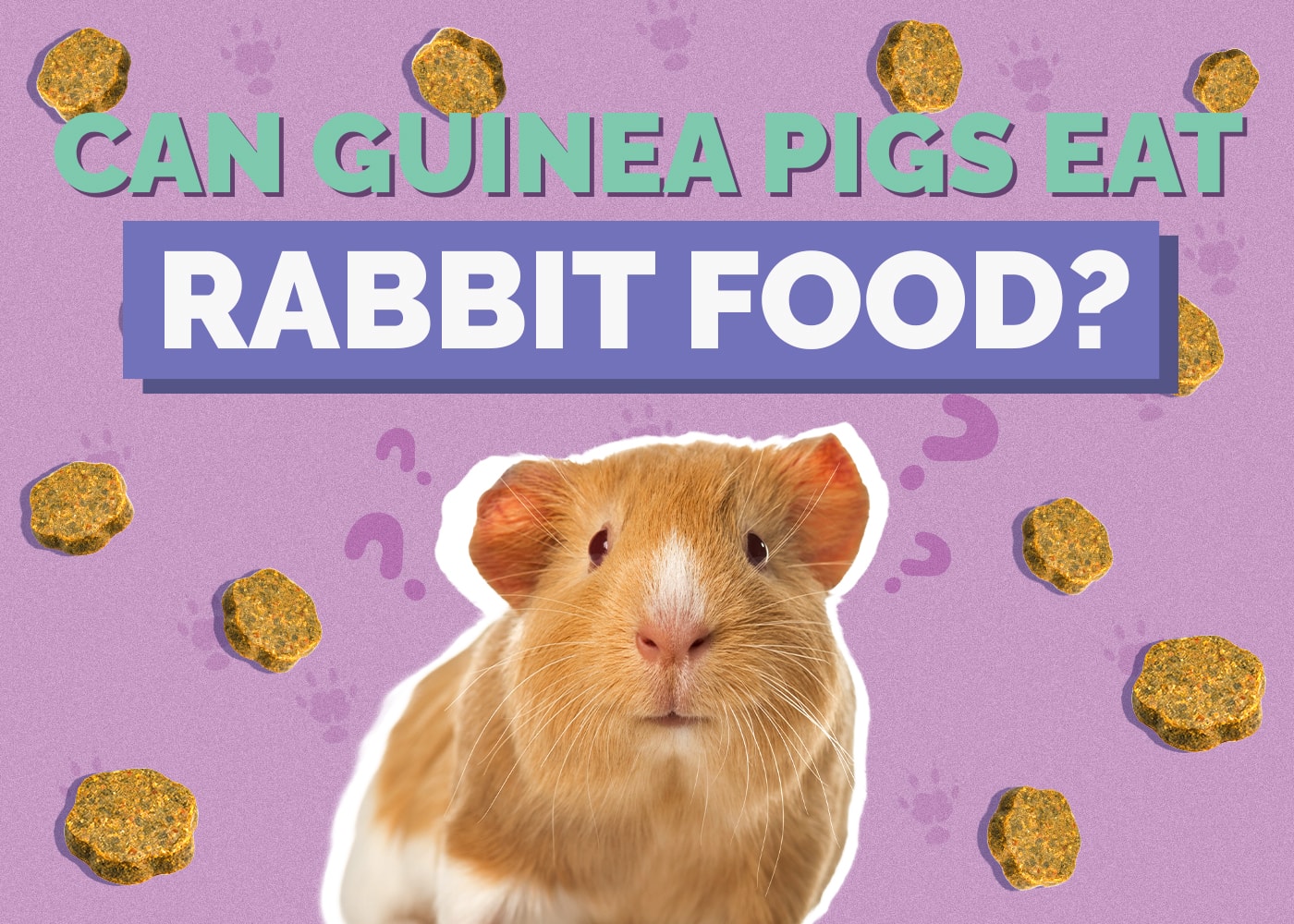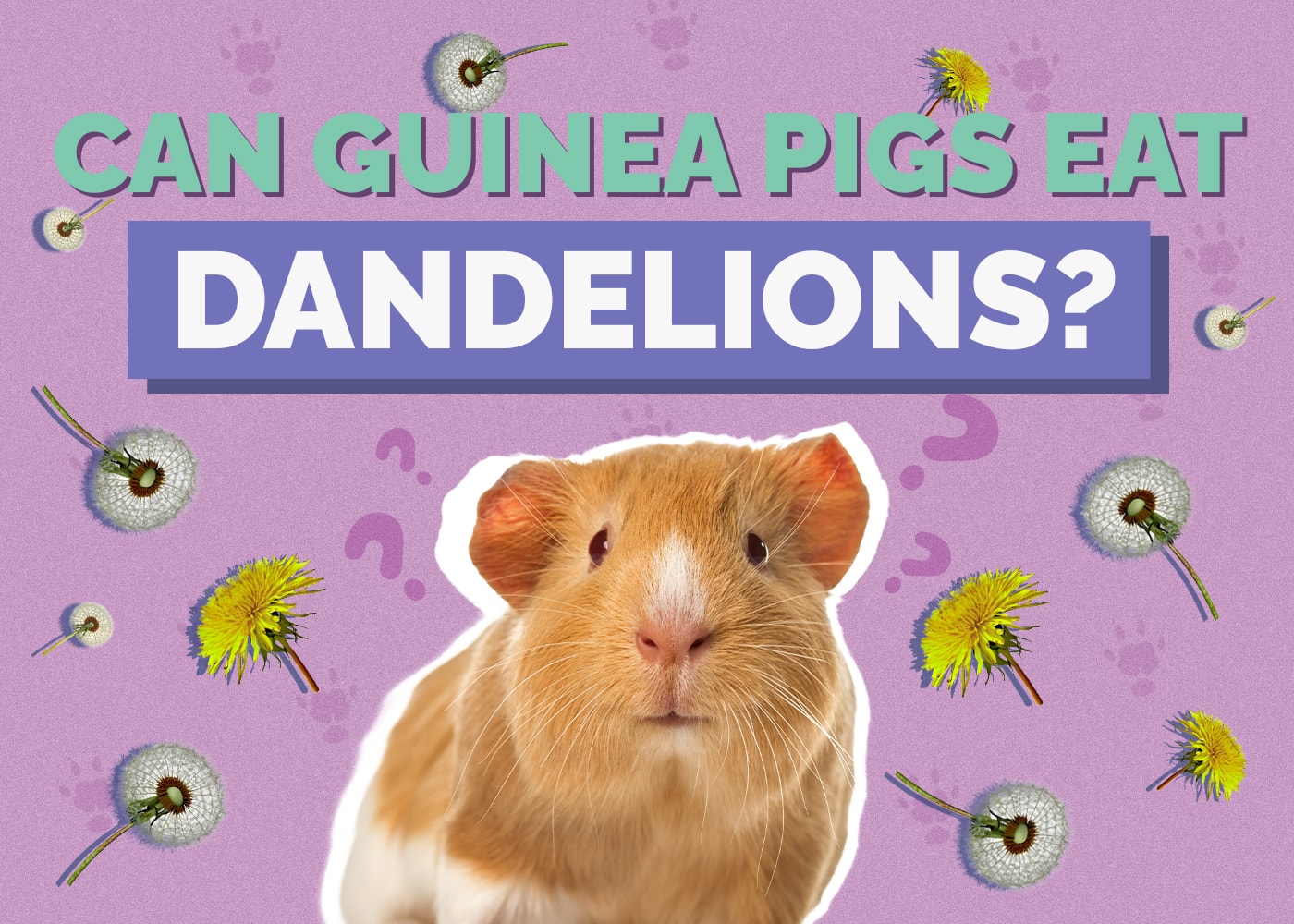Can Guinea Pigs Eat Raspberries? Vet-Reviewed Facts & FAQ
Updated on
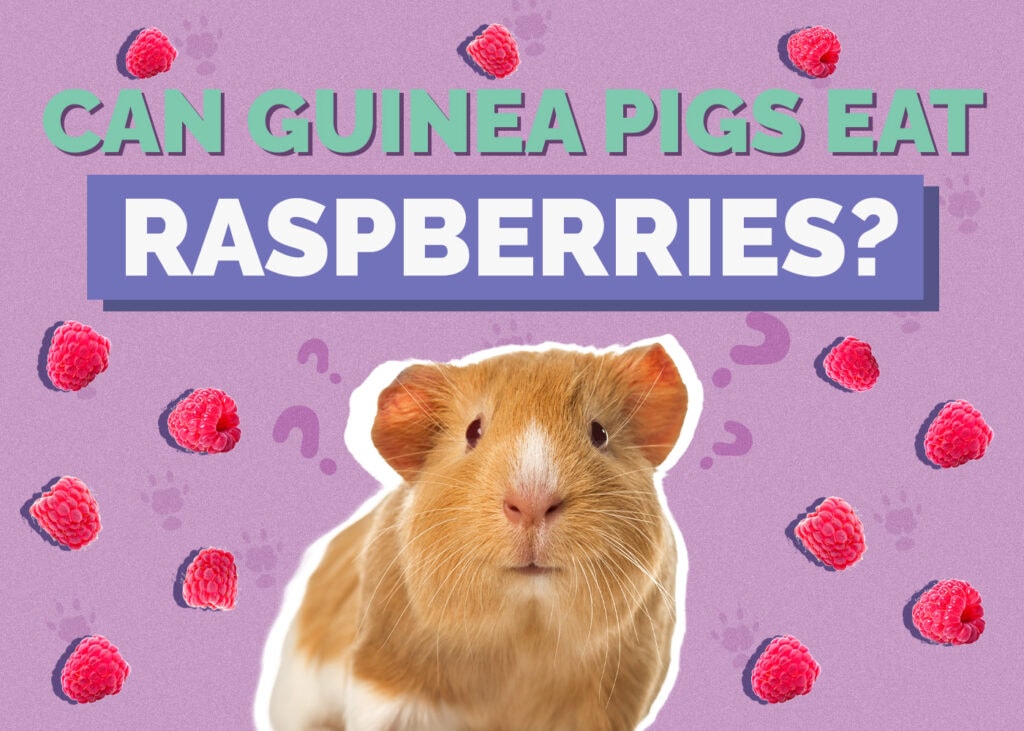
Click to Skip Ahead
As the saying goes, “sharing is caring”, so it’s only natural that you want to share your favorite snack with your sweet and gentle guinea pig. But can delicious raspberries be enjoyed safely? Yes, guinea pigs can eat raspberries, but like many of the sweetest treats, only in moderation. Like most fruits, raspberries are relatively high in sugar, so feeding them too often could lead to obesity in these tiny animals.
Raspberries are also high in oxalates, which can contribute to the formation of bladder stones in susceptible species like guinea pigs. That said, since cavies cannot synthesize their own vitamin C and must obtain it from their diet, the idea is to find the right balance between sugar and vitamin C intake.
Read on as we discuss the pros and cons of giving raspberries to guinea pigs, plussome nutritional facts. You’ll also find a few quick tips on providing a healthy diet for your fluffy and lovely cavy.
Let’s dive in!
Nutritional Benefits of Raspberries for Guinea Pigs
These exquisite little berries bursting with vitamins and antioxidants delight young and old alike. In addition to containing relatively few calories, they are rich in vitamins A, C, and K, fiber, potassium, folacin, and several other nutrients.
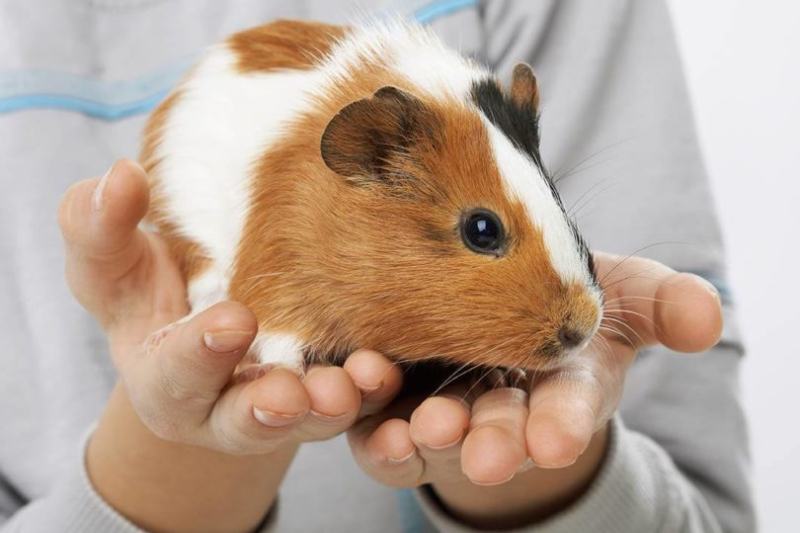
High Vitamin C Content
But the main benefit of these tasty treats for guinea pigs lies in their high vitamin C content. Unlike most mammals, guinea pigs are unable to produce their own vitamin C.1 Therefore, their diet must include a variety of foods rich in this vitamin or risk causing a deficiency that can lead to various health problems (such as scurvy).
- painful or swollen joints
- lethargy or reluctance to move
- flakey, rough coat
- slow wound healing
- gut stasis and bloat
- bloody urine or diarrhea
Why You Shouldn’t Feed Your Guinea Pigs Too Many Raspberries
Despite raspberries’ deliciousness and health benefits, you should only offer them to your guinea pigs once or twice a week.
Firstly, guinea pigs cannot and should not eat too many fruits and treats in general, as they are too high in sugar. This can lead to obesity and gastrointestinal issues, including an imbalance of gut bacteria and potentially life-threatening diarrhea.
Additionally, raspberries contain high levels of oxalates, which are organic acids found in plants. Eating too many oxalate-rich foods can promote the formation of bladder stones in susceptible species like guinea pigs. However, this shouldn’t be a problem if you only feed your guinea pig a serving of one to two raspberries per week.
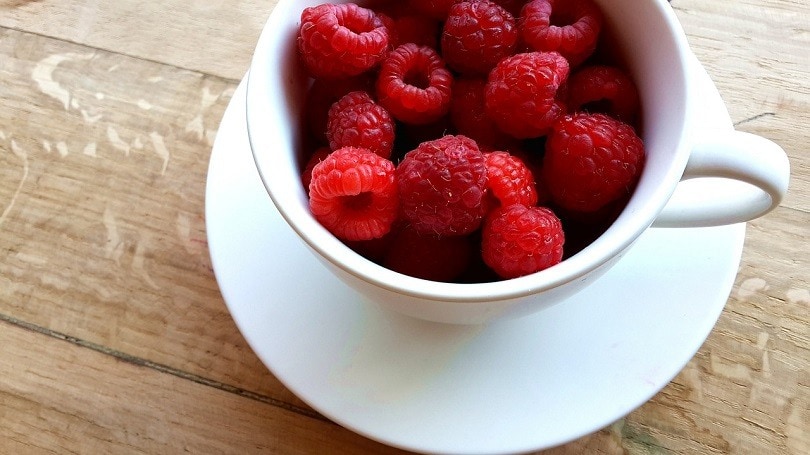
How to Feed Raspberries to Your Guinea Pig
Start by introducing your guinea pig to a small number of raspberries (one or two max!). As with any new food, the goal is to avoid gastrointestinal upset, such as diarrhea. Cut them up, rinse them, and watch your guinea pig while it eats its first raspberry to make sure it doesn’t choke on it (which is highly unlikely if you’ve given it a small piece).
Tips for a Healthy Diet for Your Guinea Pig
If you want your beloved cavy to stay by your side for as long as possible, make sure you provide it with the best nutrition. Here’s a reminder of what a healthy diet for a guinea pig should look like:
- The staple food of a guinea pig’s diet is hay, which should represent more than 3/4 of their daily intake. Timothy, orchard, meadow, or oat hay are all suitable for guinea pigs; do not feed alfalfa or clover hay to adults as it is too high in calories and calcium and is only suitable for pregnant guinea pigs.
- Supplement this diet with ½ to 1 cup of fresh vegetables daily, some fruit (once or twice a week), and specially formulated guinea pig pellets.
- Variety is essential: diversify the veggies, and let your guinea pig taste as many foods as possible from an early age, but they should not be given seeds or nuts because they are too rich in fat and calories, so avoid ready-made mixtures that combine seeds and granules.
- Lastly, guinea pigs should always have fresh, clean water at their disposal.
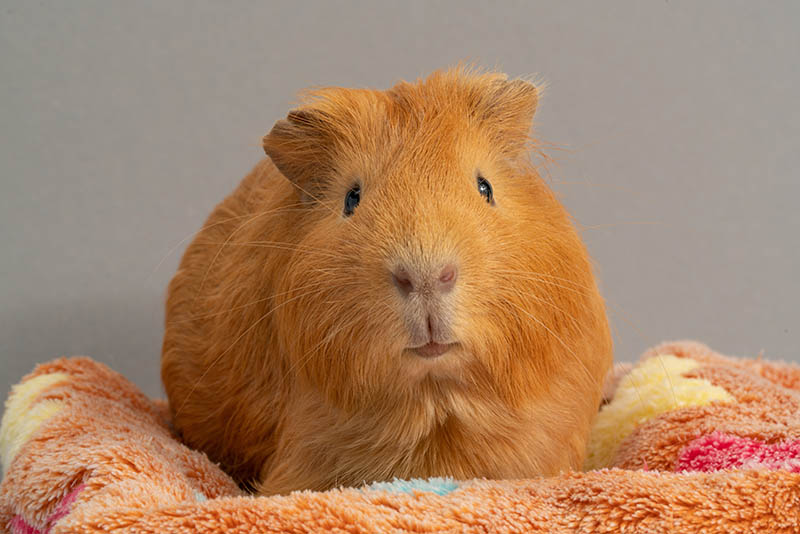
FAQ (Frequently Asked Questions)
Which Fruits Can Guinea Pigs Eat?
Small wedges of orange or apple, a few blueberries, or a thin slice of banana can be fed occasionally. Kiwis, strawberries, and citrus fruits are also rich in vitamin C, so you can give them to your guinea pig once or twice a week (but not all at once!). Fruit should comprise less than 5% of their diet.
Which Fruits Should Guinea Pigs NEVER Eat?
Dried fruits (dates, figs, raisins, apricots, etc.) and fruits with lots of seeds should never be offered to guinea pigs. Dried fruits are too high in calories, and seeds pose a high risk of choking.
Final Verdict
In short, you can feed your guinea pigs raspberries as long as you stick to one or two berries a week. This yummy treat contains vitamin C, which is beneficial for guinea pigs. However, guinea pigs should get their vitamin C primarily from veggies and other supplements, as fruits are too high in sugar to be offered daily. But if you are concerned that your little cavy is not getting enough vitamin C, it is best to seek advice from your veterinary team.
Featured Image Credit: Couleur, Pixabay


